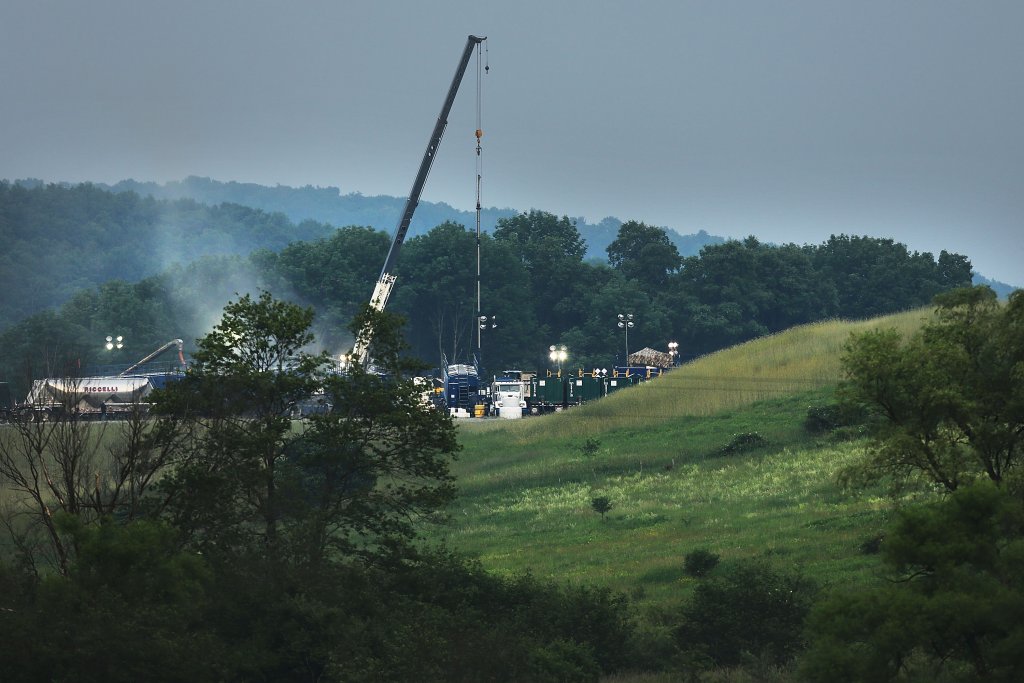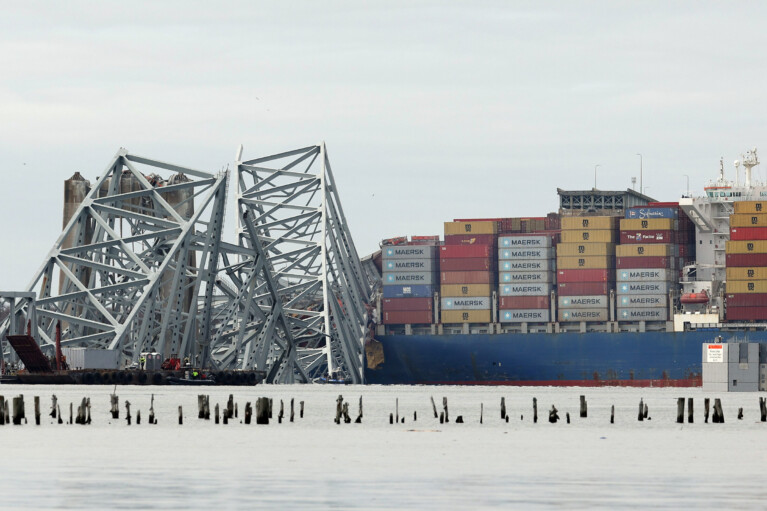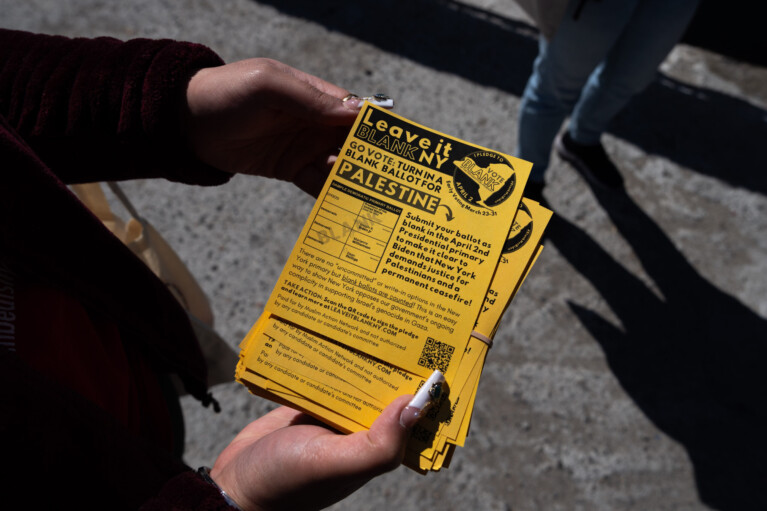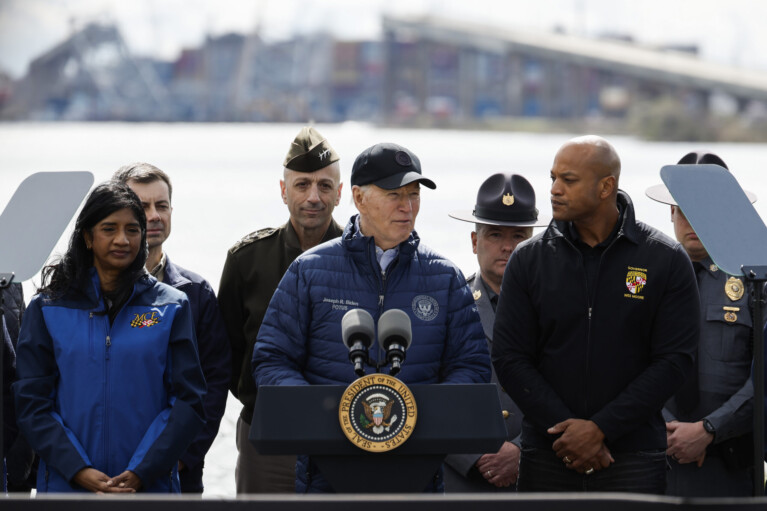Howard Lee Gorrell: What Do Biden’s Fracking Views Mean for Maryland?

Leaving from his vacation house in the Nation’s Summer Capital of Rehoboth Beach, Del., a month ago, former vice president Joe Biden, the Democratic nominee for president, traveled to southwestern Pennsylvania for a campaign rally.
Knowing that fracking is one of the Keystone State’s top campaign issues, Biden said at Carnegie Mellon University in Pittsburgh, “I am not banning fracking. Let me say that again. I am not banning fracking.”
It remains unclear whether Biden’s declaration was a play for the big prize of Pennsylvania’s 20 electoral votes, or whether he wants to prevent at least 322,600 Pennsylvanians from losing their fracking-related jobs. Maybe it was both.
His exclamation probably shook fracking opponents across the country, including Bobby Zirkin. The former Democratic state senator from Baltimore County introduced a bill on Feb. 3, 2017, to make it permanently illegal to drill into the ground in Maryland to extract natural gas, a practice known technically as “hydraulic fracturing” (more familiarly known as “fracking”). On April 4 of 2017, Republican Gov. Larry Hogan signed Zirkin’s cross-filed bill, making Maryland the first state with shale gas reserves to enact a fracking ban through legislation.
In response to Maryland political analyst Todd Eberly’s Facebook post praising Biden’s Pittsburgh speech, I teasingly wrote in a comment box, “But his cry, ‘I am not banning fracking’ gave a serious blow to Bobby Zirkin.” The latter quickly responded to me, “The rest of the speech was great.”
Flip-flops on fracking
Where does Joe Biden stand on fracking?
July 31, 2019 — During the second televised Democratic presidential primary debate, a CNN moderator asked Biden, “Just to clarify, would there be any place for fossil fuels, including coal and fracking, in a Biden administration?” Biden answered, “No, we would — we would work it out. We would make sure it’s eliminated and no more subsidies for either one of those, either– any fossil fuel.”
September 4, 2019 — At CNN’s Climate Crisis Town Hall, Biden declined to join some of his opponents in supporting a nationwide ban on fracking. Biden said he doesn’t believe there are enough votes in Congress to pass a federal law to deal with fracking.
December 2, 2019 — At a campaign stop in Algona, Iowa, an activist from the Sunrise Movement asked Biden, “I’ve looked at your climate plan. Why doesn’t it ban fracking?” Biden replied, “If you want me to ban fracking, then you better vote for somebody else.”
January 24, 2020 — In Claremont, N.H., Biden quickly said “yes” to a voter asking, “But like, what about, say, stopping fracking?”
March 15, 2020 — During the 11th televised Democratic presidential debate, Biden uttered, “so am I,” in response to his then-rival Bernie Sanders, after Sanders said he would end fracking in the United States to combat global warming. Later, Biden promised, “no more — no new — fracking.” But his campaign team later clarified that Biden referred to new drilling for oil and natural gas on federally owned lands.
April 20, 2020 — During an interview with the CBS-affiliate KDKA television in Pittsburgh, Biden said that he would not shut down the fracking industry, but he would not allow new leases on federal lands.
July 9, 2020 — Interviewing with Philadelphia-area ABC affiliate WNEP, Biden told the audience, “Well, fracking is not going to be on the chopping block” if he’s elected.
July 14, 2020 — Biden released a $2 trillion climate plan with a revamp of the energy industry, but there was no mention of fracking.
September 7, 2020 — During a one-on-one interview with Harrisburg-area NBC affiliate WGAL, Biden exclaimed, “I am absolutely opposed to ending fracking. What I said was I would not permit more fracking on federal lands. The fracking that’s taking place now I would not stop at all.”
September 29, 2020 — During the nationally-televised presidential debate, Fox News anchor Chris Wallace asked Biden a broad question about energy and climate policy and mentioned Biden’s desire to limit the growth of fracking. Biden spoke about aspects of his climate plan but did not directly address the topic of fracking.
Additionally, Biden’s running mate, California Sen. Kamala Harris, firmly said at a CNN Town Hall on Sept. 4, 2019, “There’s no question I’m in favor of banning fracking.”
So, the Democratic presidential nominee seems to support no new fracking permits for federal lands, while allowing existing fracking operations to continue. And he would appear to favor letting existing and new fracking continue on private land.
Now, what about Maryland?
Fracking impacts on Maryland
Where is the Marcellus Shale formation in Maryland? Allegany and Garrett counties are the only anticipated gas production areas in the Marcellus Shale, a rock formation that runs from New York to Virginia.
During the 2017 Maryland legislative session, the voters of Allegany and Garrett counties were surprised by Hogan’s flip-flop, when he announced his support for the fracking ban. It was a complete reversal of the pro-fracking stance he had taken on campaign trail in 2014, when Hogan said that Maryland is “sitting on a gold mine of clean natural gas energy in Western Maryland.”
At the Maryland State House, then-Senate President Thomas V. Mike Miller Jr. (D) said, “I supported legislation that banned fracking, but let the people of Garrett and Allegany County have their voice.” Miller added, “The advocates for fracking have claimed that the people of Western Maryland are for fracking, and I believed it was important to let those residents’ opinions be heard.”
At the CNN’s Climate Town Hall, Biden told the audience that he would work to “change the attitude” of governors and state legislators to restrict drilling on state lands.
Suppose Joe Biden is elected president and promotes more fracking on private land to boost the economy of communities in the Marcellus Shale region. Maryland Democratic legislators might consider the following:
- Exempting two counties, Allegany and Garrett, from the 2017 law banning fracking statewide;
-
Entitling Marylanders who are mineral rights owners and landowners to receive royalties;
-
Bringing hundreds of jobs and tens of millions of dollars in revenue to communities in the Marcellus Shale region;
-
Increasing tourism in Western Maryland;
-
Fixing the region’s infrastructure problems; and
-
Improving the quality of school facilities in this region.
“Instead of relying on gas piped in from neighboring states, Maryland should lift its ban on fracking so shale resources in western Maryland can deliver some real dividends to the state’s economy,” Salisbury University Economics and Finance Professor Dan Ervin wrote to The Daily Times of Salisbury on December 27, 2018, “That would mean more jobs and revenue, and it would help reduce greenhouse gas emissions.”
It’s hard to know where Biden will stand on banning fracking between now and Election Day — and what he’ll do if he’s elected. My prediction is that Maryland voters will hear a lot more about hydraulic fracturing between now and Nov. 3.
If the Maryland ban continues after the election, most mineral right owners might get tired of being harassed by leasing agents for selling the mineral rights to them.
— HOWARD LEE GORRELL
The writer, a former Republican Party statistician, filed the first lawsuit challenging the constitutionality of the Maryland congressional district map drawn in 2011. He owns natural gas leasing rights in West Virginia.




 Creative Commons Attribution
Creative Commons Attribution